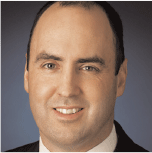Leading through a major occupational health and safety incident
Sam Witton A and Rowan Kelly AHerbert Smith Freehills.
The APPEA Journal 54(2) 559-559 https://doi.org/10.1071/AJ13132
Published: 2014
Abstract
There are many examples of incidents that can happen to a business, entirely unexpectedly, that require an immediate response. When an incident occurs, the business will be on the back foot; planning the process of response is about having the skills to regain the upper hand. Key areas to consider:
First response: ensuring no further risk is created, establishing what has happened, and ensuring duties to preserve the scene are met.
Notification: requiring consideration of whether the incident is reportable to a government body, who is responsible for making the report, and what should be reported.
Planning: ideally, a pre-prepared crisis management plan will be in place; however, things evolve quickly. A re-assessment of the plan may be required. Planning is the opportunity to regain the initiative.
Investigation: this requires consideration of the purpose that the investigation is for. Providing support to workers involved in the incident, family members of the injured workers, and the crisis team.
Regulator engagement: the relationship with the regulator will be ongoing. Consider who is best placed to be the liaison. Shadow the regulator. Aim to be measured in your responses.
Media engagement: be prepared to engage with the media, if necessary, but do not expect them to deliver the message you want. Keep it simple. Avoid admissions.

Sam Witton is a member of the Employment, Pensions and Incentives Group at the international legal practice Herbert Smith Freehills. Based in Perth, Sam specialises in work health and safety (WHS) law, advising on WHS legal issues across all Australian jurisdictions. He advises oil and gas companies on their obligations under WHS legislation, on incident response and engagement with regulators and on the proactive management of safety through safety governance arrangements. He holds a Bachelor of Law (1st Class Honours) from the University of Warwick, UK and completed part of his degree at the University of Bergen, Norway. He is admitted to practice in the UK and Australia. He is currently undertaking studies leading to a Masters of Occupational Health and Safety and has completed offshore basic survival training to allow him to respond rapidly to offshore incidents. |

Rowan Kelly is a member of the Employment, Pensions and Incentives group at Herbert Smith Freehills based in Perth. Rowan specialises in employment, health and safety law, working in a broad range of industries with a particular focus in mining, oil and gas. Rowan’s experience in assisting oil and gas companies with their work, health and safety (WHS) obligations includes such matters as the provision of tailored legal training (at all levels within a company), reviewing WHS manuals and policies and advising on WHS matters spanning from legislative compliance to responding to, and engaging with regulators. Rowan holds a Bachelor of Law and a Bachelor of Commerce from Murdoch University. He is also a contributing author to the Australian Master Work Health and Safety Guide. |


